
Prof Yakubu handing over the reins of office to Agbamuche-Mbu, yesterday
The stage is now set for the president to announce a new chairman for the Independent National Electrical Commission (INEC) as Professor Mahmood Yakubu, on Tuesday, ended his 10-year tenure as head of the electoral body.
Shortly before Yakubu bowed out, indications emerged that the presidency had zeroed in on three persons, Professor Joash Ojo Amupitan; Justice Abdullahi Mohammed Liman, and Professor Lai Olorede, as possible replacement.
A presidential source told Daily Trust last night that conclusions had been made, and that Amupitan is leading the list of the likely people to replace the former INEC chairman.
Professor Yakubu had after a meeting with Resident Electoral Commissioners at the commission’s head office in Abuja, stepped down and handed over to Mrs. May Agbamuche-Mbu, a national commissioner at the commission who has taken over in acting capacity.
The immediate past INEC chairman explained that he was stepping down to enable his successor settle down to the task of conducting elections and electoral activities.
“I have taken a decision and conveyed the same as provided by Section 36, Subsections 1 and 2 of the Constitution of the Federal Republic of Nigeria 1999, as amended,” he stated.
Another source told this newspaper that Professor Yakubu initially wanted to leave around June ahead of the expiration of his tenure but was advised to remain in office until now.
Daily Trust gathered that President Bola Ahmed Tinubu would table the name of his new nominee for the position before members of the National Council of State at a meeting slated for Thursday.
The name of the new INEC chairman is expected to be announced after the meeting.
Barring last minute alterations, Professor Amupitan, a Senior Advocate of Nigeria (SAN), is reportedly favoured for the position.
Amupitan
He is currently the Deputy Vice-Chancellor (Administration) at the University of Jos.
Born on April 25, 1967 in Aiyetoro-Gbede, Ijumu Local Government Area of Kogi State, Amupitan is a Professor of Law with specialisation and experience in Law of Evidence, Corporate Governance, Corporate Law and Privatisation Law and has taught in the university for years.
When contacted, the Kogi State Commissioner for Information and Communication, Kinsley Fanwo, declined to comment on the news making the rounds that a professor from the state is being considered to succeed the former INEC chairman, Prof Mahmood Yakubu.
He said: “A government doesn’t comment on rumours”.
Former member of the House of Representatives, Timothy Golu, who said he has known Amupitan for over ten years, described him as a well-respected lecturer and astute administrator.
He said while he was a student at the University of Jos, Amupitan was one of the lecturers students could approach easily at any time.
“So, I have no doubt that he would discharge the duties credibly if it is true that he is being considered,” he said.
Professor Amupitan has held several academic and administrative positions including representative of the Faculty of Law in several boards in the University of Jos; Head of Department, Public Law; Dean, Faculty of Law; Chairman, Committee of Deans and Directors, Member, Governing Council, University of Jos and Member, Governing Council, Nigerian Institute of Advanced Legal Studies as well as Council of Legal Education among many others.
He is member of several professional bodies and associations including the Nigerian Bar Association (NBA), Nigeria Institute of Management (NIM) and National Association of Law Teachers.
Professor Amupitan’s research interests are diverse and wide ranging from providing the Legal Framework for the Privatization of Public Enterprises in Nigeria, Reform of Electoral Laws in Nigeria to the Reform of Privatization Law in Nigeria and Petroleum Industries Law Reform in Nigeria among others.
He has over 50 journal, book chapter, conference, monograph, case review and research report publications and has contributed to the successful execution of a number of national and internationally funded projects.
Liman
Justice Abdullahi Mohammed Liman is a retired Justice of the Court of Appeal.
Liman, according to reports, was born on in 1959 and became a lawyer in 1984. He hails from Nasarawa State. He has been a judge for over 25 years.
He has been associated with a number of high-profile cases including his ruling that temporarily restrained the reinstatement of Sanusi Lamido Sanusi as Emir of Kano, and his orders halting the suspension and arrest moves against former Kano governor Abdullahi Ganduje.
Lai Olurode
Professor Lai Olurode is a sociologist, academic and first-class graduate of Sociology from the University of Lagos (UNILAG), Akoka, Lagos State.
He also studied Law at the UNILAG where he obtained LL.B in 1990. He was called to the Bar in 1991.
He joined the UNILAG in 1980, and became a professor of Sociology in 2000. He served as Head of Department and Dean of the Faculty of Social Sciences.
He taught for over 40 years of teaching, before retirement and was appointed as National Commissioner of the INEC on June 30, 2010, overseeing Oyo, Ogun and Ekiti States.
Daily Trust further learnt that Yakubu had long cleared his desk and had prepared his hand over note and was only waiting for the appropriate signal to leave.
A reliable source in the commission told our correspondent that Yakubu had concluded all arrangements for the Anambra elections and that his exit would not have any negative impact on the exercise.
He said: “There were 13 items in the process and Yakubu had done all except two which are; to end campaigns and the election itself.”
Former INEC director, Mr. Nick Dazang, when contacted said with the convening of the Council of State by the President on Thursday, “it means we are likely to know his probable successor before next week. I don’t think his departure will affect the work of the commission.”
He added: “The commission is a continuum. It is also an Executive Body as established by Section 153 of the Constitution. There will be thus no challenge for the Commission to form a quorum and to carry out its mandate. Besides, the Commission is ably complemented by Resident he Electoral Commissioners (RECs), Secretary to the Commission and Directors/Administrative Secretaries who are the engine room and institutional memory. In time past, similar transitions have taken place seamlessly even when off-cycle governorship elections were afoot.”
Longest serving chairman
Prof. Yakubu is the only chairman of the electoral body to do a two-term tenure of ten years.
He is also the third chairman to complete his tenure in office as most of his predecessors were either swept away by controversies or made to go with the ouster of the administration’s that appointed them.
Nigeria has had six different electoral bodies and a total of 14 chairpersons and one in acting capacity.
Six of them, Michael Ani, Eme Awa; Humphrey Nwosu; Okon Edet Uya; Sumner Dagogo Jack and Ephraim Akpata served under military regimes.
Ani and Akpata had tenures that overlapped as among those that served under military governments, only the two of them were able to conclude elections and ensure transition to civil rule.
Eyo Ita Isua; Victor Ovie Whiskey; Abel Guobadia; Maurice Iwu; Attahiru Jega and Mahmood Yakubu all served under civilian administrations.
Guobadia is remembered as the first chairman to serve out his full tenure.
Professor Yakubu, who succeeded Attahiru Jega as INEC chairman in 2015, is the first to be reappointed for a second term, making his tenure the longest in the commission’s history.
The appointment of Mbu, makes it the second time a woman is acting chairman of the commission. When Jega retired in 2015, then President Muhammadu Buhari named Amina Bala Zakari as acting chairman, making her the first woman to lead INEC.
The acting chair
Mrs. May Agbamuche-Mbu, is a National Commissioner at INEC. She’s a lawyer by training with over three decades of professional experience,
From Delta State, Agbamuche-Mbu attended St. Louis Secondary School, Kano, before proceeding to the University of Ife (now Obafemi Awolowo University), where she earned her Bachelor of Laws (LLB) degree in 1984. She was called to the Nigerian Bar in 1985 and later qualified as a Solicitor of the Supreme Court of England and Wales after completing studies at the College of Law, London.
Agbamuche-Mbu also holds a Master’s degree in Commercial and Corporate Law from Queen Mary and Westfield College, University of London, as well as postgraduate qualifications in International Dispute Resolution and International Business Law
Agbamuche-Mbu was confirmed as a National Commissioner of INEC in 2016.
She is a certified arbitrator and former Secretary of the Chartered Institute of Arbitrators (Nigeria). As editor of THISDAY LAWYER, she wrote over 120 editions of her widely read “Legal Eagle” column from 2014 to 2016, influencing public discourse on law, governance, and policy.
Meanwhile, President Bola Ahmed Tinubu has accepted Professor Mahmood Yakubu’s exit from INEC.
A statement by the Special Adviser to the President on Information and Strategy, Bayo Onanuga, stated that Prof Yakubu had in a letter dated October 3, 2025, thanked the president for the opportunity to serve the nation as chairman of the commission since 2015.
“President Tinubu thanked Professor Yakubu for his services to the nation and his efforts to sustain Nigeria’s democracy, particularly through the organization of free and fair elections throughout his two-term tenure.
“In recognition of Yakubu’s dedicated service to the nation, President Tinubu has bestowed on him the honour of Commander of the Order of the Niger(CON)”, the statement added.
President Tinubu also directed that Professor Yakubu should hand over to the most senior national commissioner, May Agbamuche-Mbu, who will direct the affairs of the commission until the completion of the process to appoint a successor.
The presidency recalled that the tenure of Yakubu, who was first appointed in November 2015 as the 14th chairman of the commission for an initial term of five years and was renewed in 2020, has now expired due to the passage of time.
Process of appointing INEC chairman
Under the 1999 Constitution (as amended), the appointment of an INEC chairman is the exclusive responsibility of the President, subject to confirmation by the Senate. Section 154(1) provides that “the appointment of the Chairman and members of the Independent National Electoral Commission shall be made by the President and shall be subject to confirmation by the Senate.”
Paragraph 14 of Part I of the Third Schedule further stipulates that the appointee must be a person “of unquestionable integrity” and not less than 50 years of age.
And after the selection by the president, the Senate must screen and confirm the nominee before appointment, and in doing this, the Senate conducts a confirmation hearing to assess the nominee’s qualifications, integrity, and suitability.
If the Senate approves by a simple majority, the nominee is confirmed. After confirmation, the President formally appoints and swears in the new INEC Chairman.
The INEC Chairman serves a five-year term, renewable once (maximum of 10 years). This is provided under Section 3(1) of the INEC (Establishment, etc.) Act, 2010.
Also, the President cannot remove the INEC Chairman unilaterally. Removal can only occur based on an address supported by a two-thirds majority of the Senate, and only for reasons such as misconduct, inability to perform functions, or conviction for an offence (see Section 157 of the Constitution).
Speaker calls for speedy conclusion of electoral reforms
Meanwhile, Speaker of the House of Representatives, Abbas Tajudeen, has charged lawmakers to prioritize the conclusion of ongoing electoral reforms well before the 2027 general elections to ensure a credible, transparent, and less contentious process.
Speaking on Tuesday as the House resumed plenary after its 2025 annual recess, Abbas emphasized that finalizing the amendments to the Electoral Act early would strengthen Nigeria’s democracy and guarantee smoother electoral administration.
He said the Electoral Act Amendment Bill currently before the National Assembly seeks to address key flaws observed in previous elections, including violence, litigation, and ambiguities in timelines.
“We must finalize electoral reforms well ahead of the 2027 general elections. The Electoral Act Amendment Bill seeks not only to strengthen measures against violence, improve access for persons with disabilities, and establish clearer timelines for resolving disputes, but also to reduce the ambiguities that trailed the last elections,” he said.
According to Abbas, the proposed reforms will make elections “less contentious and litigious,” while lowering costs through the introduction of single-day voting and more transparent party primaries. (Daily Trust, excluding headline)
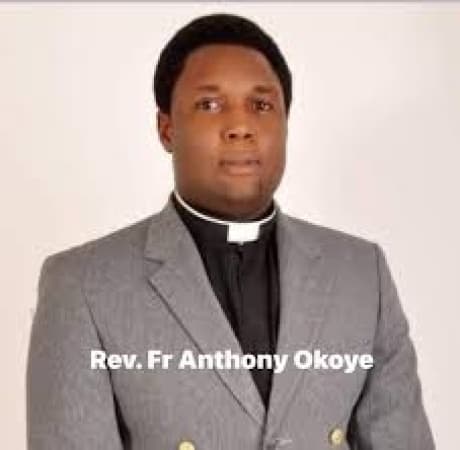
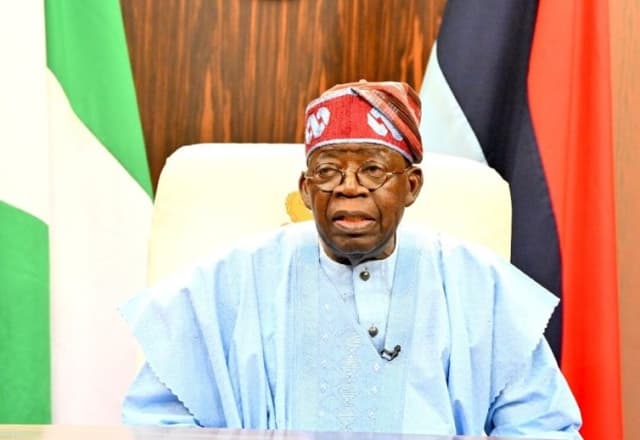
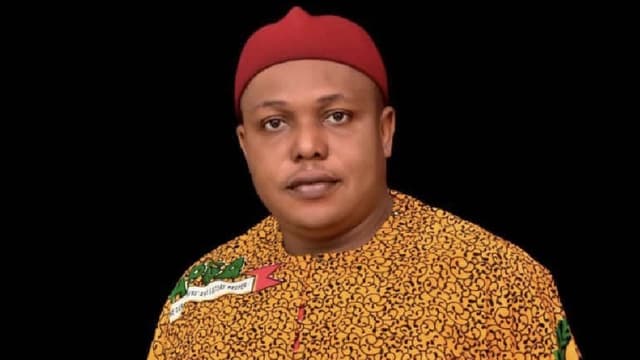




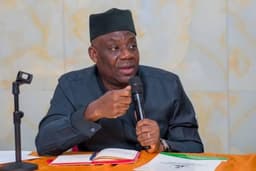
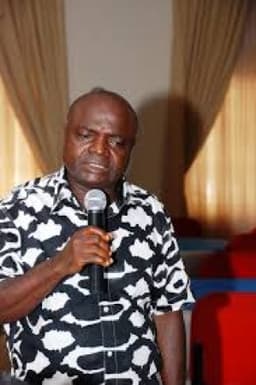

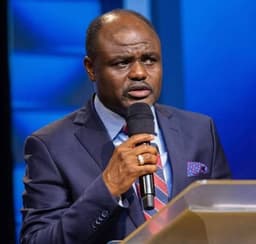


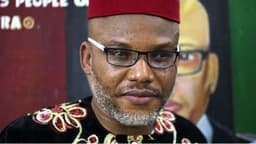





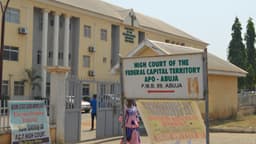
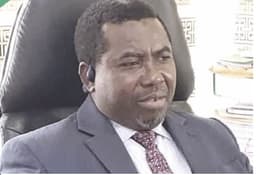



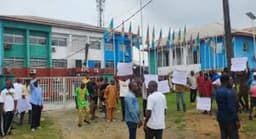
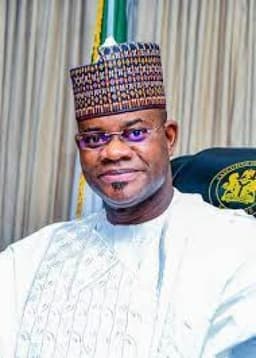

NEWS EXPRESS is Nigeria’s leading online newspaper. Published by Africa’s international award-winning journalist, Mr. Isaac Umunna, NEWS EXPRESS is Nigeria’s first truly professional online daily newspaper. It is published from Lagos, Nigeria’s economic and media hub, and has a provision for occasional special print editions. Thanks to our vast network of sources and dedicated team of professional journalists and contributors spread across Nigeria and overseas, NEWS EXPRESS has become synonymous with newsbreaks and exclusive stories from around the world.